Ferdinand
 for rude humor, action and some thematic elements.
for rude humor, action and some thematic elements.
Reviewed by: Shawna Ellis
CONTRIBUTOR
| Moral Rating: | Better than Average |
| Moviemaking Quality: |
|
| Primary Audience: | Kids Family |
| Genre: | Animation Adventure Kids Comedy 3D |
| Length: | 1 hr. 46 min. |
| Year of Release: | 2017 |
| USA Release: |
December 15, 2017 (wide—3,600+ theaters) DVD: March 13, 2018 |
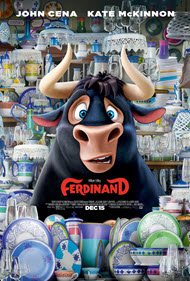

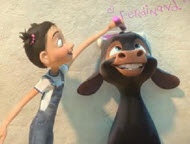
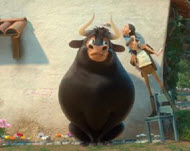
Being strong, but kind and gracious—avoiding violence
What is biblical MEEKNESS? Answer
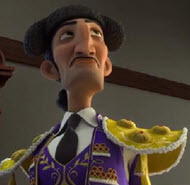
Why is HUMILITY so important? Answer
IMPORTANCE OF GRANTING FORGIVENESS TO OTHERS—In God’s sight, it is totally unacceptable for a Christian to refuse to forgive others.
Remember the parable of the master who forgave a guilty man who owed him an amount so enormous that he could never hope to pay it back? The master completely forgave him. But, afterward, that forgiven man roughly grabbed another who owed him a very small amount, and allowed him no time to repay—showed him no mercy—and threw him into prison. When the master heard of this, he was FURIOUS and his punishment was swift.
In that parable, the Master represents God. And the forgiven man represents you, IF you have similarly FAILED to forgive another, when Christ’s blood has paid your unpayable debt to God, and He has forgiven you for everything you have ever done wrong—and for your continuing failures to do everything that is truly right and good.
Therefore, we have a responsibility to be humble, forgiving, loving servants of God.
Cattle in the Bible


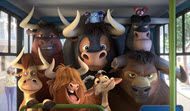

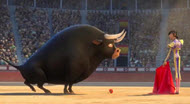

| Featuring |
|---|
|
John Cena … Ferdinand (voice) Kate McKinnon … Lupe (voice) Bobby Cannavale … Valiente (voice) David Tennant … Angus (voice) Gina Rodriguez … Una (voice) Daveed Diggs … Dos (voice) Miguel Ángel Silvestre … El Primero (voice) Gabriel Iglesias … Cuatro (voice) Anthony Anderson … Bones (voice) Katy Perry … Tres Daniela Bobadilla … Tall Nun (voice) See all » |
| Director |
| Carlos Saldanha — “Rio,” “Rio 2,” “Ice Age: Dawn of the Dinosaurs,” “Ice Age: The Meltdown” |
| Producer |
|
Bruce Anderson John Davis See all » |
| Distributor |
Meekness is not weakness… it is power under control. This truth is exemplified in the animated children’s film, “Ferdinand.”
While all the others bulls at Casa del Toro seek glory in the fighting arena, young Ferdinand only wants to live a peaceable life. The others think that Ferdinand should want to fight, because “that’s what bulls do.” Despite his insistence that he is not a coward, everyone except for his father assumes the worst in him. They can’t believe that he simply does not share in their universal dream of glory. Meanwhile, most humans who encounter Ferdinand (John Cena) assume that he is a brutish beast because of his huge size and the inescapable fact that he is a bull.
Ferdinand consistently shows grace, forgiveness, and kindness to those he encounters. He takes the time to give encouragement and comfort to those who are hurting. In one touching scene, Ferdinand tells a character he has just helped that it was not a big deal. The character responds, “It was to me.” This should be a reminder to us that our kind actions can have great impact in the lives of others. Multiple times, Ferdinand purposely chooses to sacrifice his own comfort and freedom to help others… including those who have been unkind to him. I have rarely seen a more unselfish and considerate character in a children’s film!
Even as I watched the movie in the theater, I saw evidence that children need examples like this. A group of teen girls laughed loudly at very sad moments in the film, apparently finding humor when most people would feel sympathy. Their callousness was disturbing. In another incident, a child spilled his whole tub of popcorn at the beginning of the show, and later two preteen boys pointed and laughed when they saw the spilled food on the floor. Like the girls, they seemed to find joy in the loss of another. Sadly, these children were probably not even aware that they were behaving like the cruel bullies in the film. If they would allow it, the kind and loving character of Ferdinand could be an example to them.
Pridefulness and the thirst for glory and honor are shown as being a fault, while humility and kindness are lifted up. This is in sharp contrast to the usual teachings of today, which consider success to come only with worldly power. In Proverbs 16:32, we read that,
“He who is slow to anger is better than the mighty, and he who rules his spirit, than he who captures a city.”
Ferdinand does not choose to exert his great physical strength and power over others, but rules over his own spirit even while being belittled and reviled. What a message for young people today!
Although Ferdinand usually chooses to do what is good and right, a crisis is initiated by a single act of disobedience. When faced with losing something he enjoys, he justifies the choice to disobey the limits which were placed upon him by those who love him. We can often find ourselves doing the same, not understanding that many of the seeming “limitations” which God puts in our lives are there for our own good and protection.
Technically, this is a lovely film with solid voice acting which seemed to be enjoyed by all in the theater. The pace is frenetic at times, with many chases and silly situations which elicited much laughter. This is countered by quieter moments in which we see more focus on the characters. This film has both humor and heart.
“Ferdinand” has less content of concern than most in its genera, especially when compared to other Blue Sky Productions such as the “Ice Age” franchise. Most refreshingly, there was no taking of the Lord’s name in vain and almost zero sexual innuendo or pushing of a secular sexual agenda. I had been afraid that “Ferdinand the flower loving bull” would be portrayed as effeminate, but this was not the case at all.
There is schoolyard style teasing, including name-calling like “loser” and “weakling.” Although this is often played for humor, it is contrasted sharply by Ferdinand’s stronger character.
Three snobbish horses are portrayed with obvious German accents. At one point they say (as an insult), “I bet his parents weren’t even related.”
The “comfort goat” Lupe (Kate McKinnon) is a crude character and delivers most of the coarser humor. At one point, she assesses Ferdinand’s muscular body in an objectifying way, exclaiming “Momma like!” when she sees his rear and singing a snippet of the song “Brick House.” The moment is thankfully brief. Once, she refers to Ferdinand as “F Bomb” and says that the other bulls will “fertilize the yard” when they see him. Lupe is often used for physical slapstick style humor as well, and sometimes gags up items.
The term “you suck” is used twice, as well as “it sucks to be you.” There are multiple mentions of “butts” and “buttocks,” including by the matador who then clenches his in tight pants. One character often gags and vomits when nervous. We do not see the vomit, but comical retching sounds are heard.
There are several scenes of mild peril, most of which are played for humor and which brought forth much laughter from the audience. These include encounters with an electric fence, fighting between bulls, various wild chases and scenes of chaos. An extended scene in a dimly lit slaughterhouse varies from being mildly ominous to humorous. Other scenes of peril are more troubling, including a character who is lost and alone, images of bullfighting swords, a display of the trophy horns of defeated bulls, and characters being taken away forcibly while others watch in dismay. The truly violent nature of bull fighting is hinted at and implied without being overtly shown, except for one cut with a sword and a jab by a sharp prod.
Twice, nuns hold out a wooden cross to ward off what they consider to be a dangerous beast. The matador (a pompous and unlikable character) appears to kneel in prayer before a bullfight. While resuscitating a rabbit, a character says, “Don’t go into the light!” One bull is said to have been created in a laboratory and is referred to as a “Frankenbull.” A character says “put that in your kilt and smoke it.”
Three mischievous hedgehog characters steal food, justifying their actions by saying that they aren’t thieves but “survivors.” For whatever reason, there are no mothers (either bovine or human) portrayed or mentioned in this film. There are brief examples of fathers, one being callous and harsh while two others are shown as kind and loving. The loss of a father is heavily implied but not shown.
With so little negative content and so much more that is good, I can highly recommend this film for families.
What I keep returning to as I think about “Ferdinand” is that meekness is portrayed as a true virtue and not as a failing. The biblical virtue of meekness is not cowardice, but is strength and power that is held in check. Jesus asks us in Matthew 11:29 to follow His example of meekness and gentleness. What better example can we have than this One who had great power, but held it in check to accomplish His purpose?
The bulls at the Casa del Toro believe that there are only two choices in life: beat the matador or go to the slaughterhouse. They think that besting the matador will give them power and freedom, but unbeknownst to them, the bulls that fight the matador do not win. Theirs is a life that can only end in death. One of them asks hopelessly, “What else is there?”
Like many people in this world today, they do not understand that there is another alternative… a way to have peace and joy. Just as Ferdinand tells them that there is a whole other world beyond the bullfighting arena, we should tell others that this Earthly life is not all there is. Many people today see the harsh realities of this fallen world and are asking, “What else is there?” There is hope and life in Jesus Christ!
- Violence: Mild
- Profane language: Minor
- Vulgar/Crude language: Minor
- Nudity: None
- Sex: None
See list of Relevant Issues—questions-and-answers.


PLEASE share your observations and insights to be posted here.
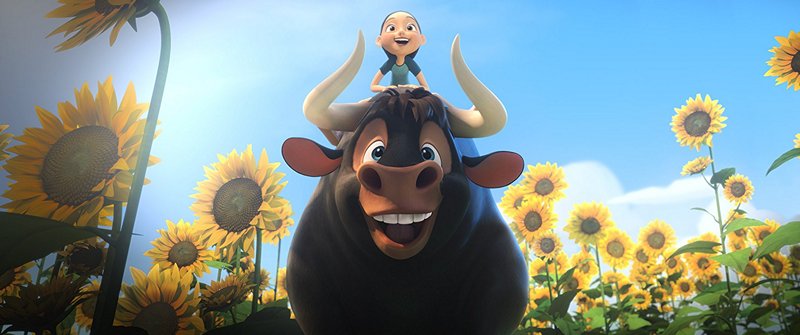





The beginning was a little boring, but once you get more into it it’s actually really funny. It’s like the book, but not. In the book, it starts off with Ferdinand always being at his cork tree, and he get stung by the bee there, and not in town with a different family than where he grew up. The dog was very funny in the movie, but wasn’t in the book either.
The movie had the perfect kinds of music for the different scenes.
My Ratings: Moral rating: Good / Moviemaking quality: 5